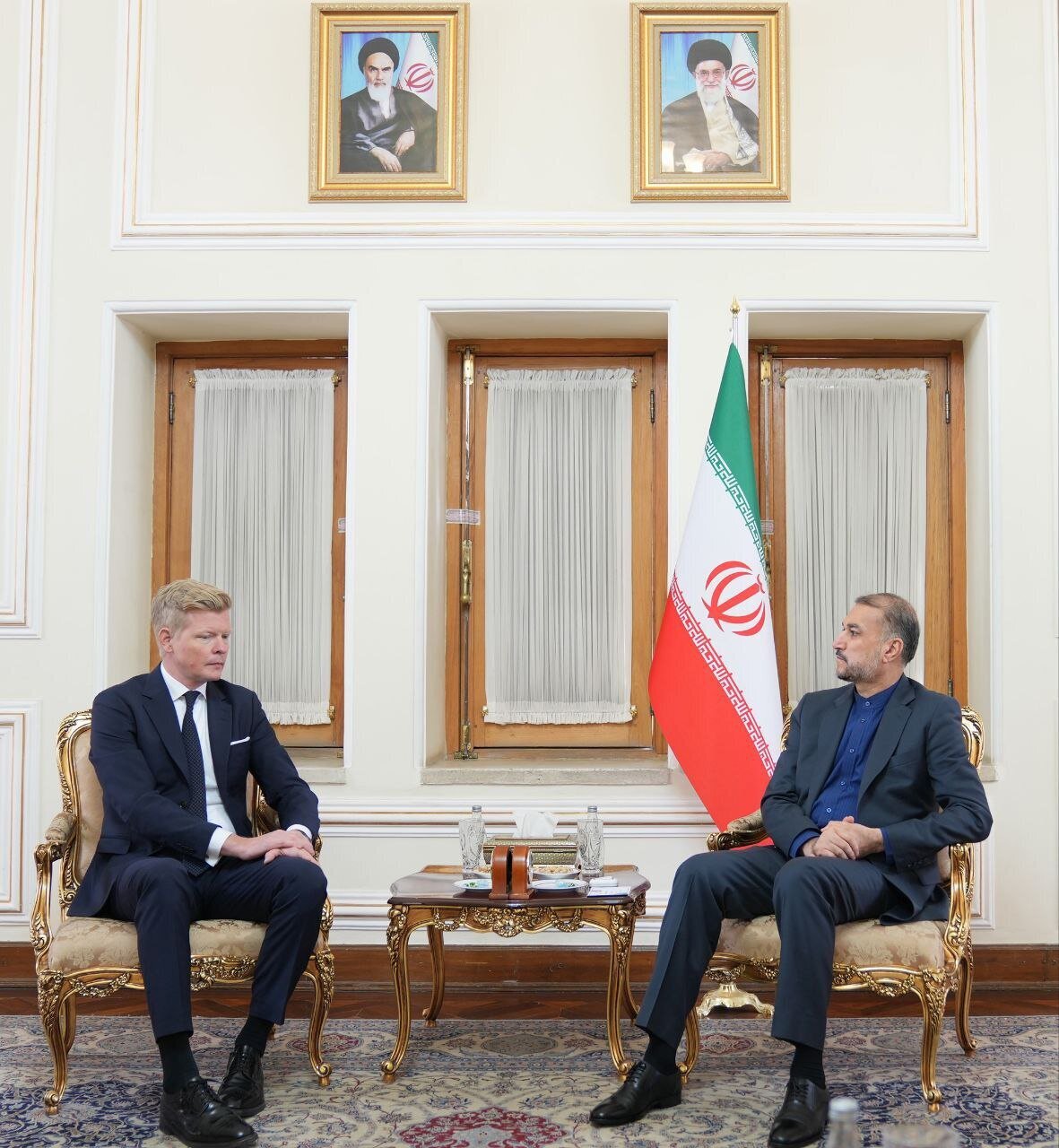UN: Talks with Iran centered on defusing tensions in Yemen, region

TEHRAN- Stéphane Dujarric, the United Nations spokesperson, announced on Tuesday that talks between Hans Grundberg, the UN Special Representative, and Hossein Amir Abdollahian, the Iranian Foreign Minister, and other Iranian officials were focused on reducing tensions in the region and hampering renewed violence in Yemen.
He added that Grundberg emphasized the need to maintain progress made on the comprehensive ceasefire in Yemen, efforts to improve the living conditions of the Yemeni people, and the political process led by Yemeni leaders under the supervision of the United Nations.
The UN spokesperson stated that Grundberg discussed ways to preserve space and constructive dialogue in Yemen with Iranian authorities, noting that the talks were also focused on reducing tensions in the region and preventing renewed violence in Yemen.
In response to another question about attacks in the Kurdistan region of Iraq, Dujarric expressed concern about the escalation of tensions and the spread of tensions due to attacks in Syria, Iraq, the Red Sea, and Yemen. These conditions are very fragile.
The talks between Grundberg and Amir Abdollahian centered around the latest developments in the region, placing a special focus on the situation in Yemen.
Amir Abdollahian emphasized the Iranian Foreign Ministry's concern over the military actions conducted by the United States, specifically the military assaults by the U.S. and the UK on Yemen.
He noted that the re-designation of Ansarullah as a terrorist organization in the U.S. has added complexity to the situation, hindering potential political solutions.
The top Iranian diplomat also criticized recent U.S. aggression in Syria and Iraq, attributing them to the consistently flawed and unsuccessful approach of the country in resolving issues through violence and military attacks.
Referring to Iran's ongoing support for achieving peace and sustainable security in Yemen, Amir Abdollahian highlighted the broader benefits of efforts directed towards stability and security throughout the region for all countries in the area. He stressed the imperative need for a political resolution.
Grundberg expressed appreciation for the Islamic Republic of Iran's commitment to stability and security in the region, particularly in Yemen.
He also emphasized the necessity of addressing the root causes of regional crises.
CENTCOM announced that on February 3 that the U.S. Central Command forces, alongside armed forces from Britain and with support from Australia, Bahrain, Canada, Denmark, the Netherlands, and New Zealand, attacked 36 positions and targets of Ansarullah in 13 locations in Yemen.
CNN reported on Sunday night local time that according to two senior Biden administration officials: Joe Biden, the President of the United States, had given the green light for attacks on Yemen on Saturday.
CNN quoted a U.S. government official as saying: These attacks are separate from retaliatory actions taken by the United States on Friday in Syria and Iraq and relate to actions to defend American and international commercial ships in the Red Sea.
The U.S. military bases in Iraq and Syria have been targeted by drone, rocket, and missile attacks since October 17, Islamic resistance groups in West Asia, including those in Iraq and Syria as well as Yemeni forces, have warned the United States that they will target U.S. bases in the region in retaliation for Israel’s actions in Gaza and Washington’s support for such ruthless attacks.
The Yemeni army forces have committed to continue attacks on Israeli regime ships or ships heading to occupied territories in the Red Sea until the Israeli regime stops its attacks on Gaza. However, merchant ships in the Gulf of Aden and the Red Sea are free to navigate and are fully secure.
Leave a Comment